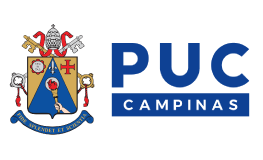Lines of Research:
- Instruments and Processes in Psychological Evaluation
Researches on theoretical and practical aspects that aim the construction, adaptation, and use of instruments and procedures of psychological evaluation, in different areas of actuation.
- Prevention and Psychological Intervention
Researches that aim the study of psychotherapy procedures, the development, follow-up, and evaluation of preventive and intervention programs in the clinical, school, and health areas with theoretical psychodynamic, behavioral, and humanistic focuses.
Objectives
Form high level teaching staff and researchers in the area of Psychology contributing, thus, for the quality of graduation education in the country and for the production of scientific knowledge.
Target Audience
– Masters in Psychology or areas of connected domain, graduates in Psychology or connected areas with verified scientific production.
Scholarship Modalities
a) CAPES/MEC: Program of Support to Post-Graduation from Private Education Institutions;
b) CNPq/MCT: Doctor’s Degree (GD);
c) PUC-Campinas/Rectorship: 50% exemption on tuition.
Curricular Structure
For the acquisition of the diploma of Doctor in Psychology are necessary a total of 32 credits, concentration area: Profession and Science. The credits are attributed as follows:
1) Mandatory disciplines = 04 credits (two disciplines, adding up to 02 credits, two class/hours);
2) Advanced Research Seminars – ARS = mandatory discipline, 06 credits (three ARSs, adding up to 02 credits, two class/hours). Only one ARS per semester is allowed.
3) Elective disciplines = 06 credits (two disciplines, adding up to 03 credits, three class/hours);
4) Thesis = 16 credits.
The mandatory disciplines are of two types:
a) Mandatory General, that must be carried out by all students regularly enrolled in the Doctor’s Degree in the 1st school semester. This is the below appointed discipline:
– Trends and Perspectives in Scientific Psychology (Mandatory General)
b) Mandatory Line, two shall be offered from which the student will chose one to be attended in the 1st school semester according to his/her Thesis Project:
– Psychological Prevention and Intervention
– Psychological Evaluation: Basics
Each candidate for a doctor’s degree, therefore, shall carry out Mandatory General and one of the two Mandatory Line corresponding to his/her Thesis Project.
ARS – Advanced Research Seminar: includes three mandatory modules of 02 credits to be carried out in three consecutive semesters. It analyses and follows the delineation of students’ research projects, especially dissertation and thesis projects, prioritizing the epistemological and methodological aspects. It promotes reflections on themes developed by the Institutional Research Group.
The structure of the Doctor’s Degree aims at following the orientation from external agencies, and assumes an ideal graduation period of forty eight months (48 months), equivalent to eight semesters for the acquisition of the title of Doctor in Psychology.
At the end of the fourth school semester, the candidate for a doctor’s degree must submit his/her project to the Qualification Exam, which confirms or reorients the direction of the student’s research project. For the Qualification Exam to be productive, it is necessary that the student has had at least two semesters of guidance. At the end of the eighth semester, the student publicly argues/defends his thesis, which if approved, will grant him/her the title of Doctor in Psychology. The candidate for a doctor’s degree may graduate in thirty months; for such he/she must carry out all credits until the third school semester.
The student who directly enters from Graduation into the Doctor’s Degree Course, via Selection Process, must complete 64 credits, corresponding to the Master’s Degree and Doctor’s Degree levels, in a maximum period of 48 months, becoming worthy of the title of Doctor in Psychology.
| 1st semester | 2nd semester | 3rd semester | 4th semester |
|---|---|---|---|
| Mandatory General | Elective (1) | Elective (2) | Guidance |
| Mandatory Line | ARS II | ARS III | – |
| ARS I | Guidance | Guidance | – |
| Guidance | – | – | – |
History
PUC-Campinas’ Post-Graduation Program in Psychology was created in the end of the 1970s. It originated from a Specialization Course that, when consolidating itself created the opportunity for the development of an Academic Master’s Degree with a concentration area in clinical psychology. From the theoretical point of view the two main approaches already present in the formation of the graduate students of the old Institute of Psychology were respected – behavioral and psycho analytics. The construction of the Master’s Degree Course had the arrival of prestigious professors, renowned as much in Brazil as abroad, who contributed for the formation of the University and the region’s first masters in Clinical Psychology. From the late 1970s to the early 1990s, 125 masters were graduated in Clinical Psychology and the program’s teaching staff integrated fifteen researchers. From the 1990s, due to a growing demand, a new concentration area in the master’s degree was created – school psychology. With the operation of this new area, several changes took place, among them the restructuring of the physical space and amplification of the teaching staff. The diversity of theoretical positions and the context propitious to the scientific debate contributed for the necessary for the maturation of the Program, qualifying it for submission to CAPES of the Doctor’s Degree course proposition that counted with the institutional approval, support, and support. The incentive had come up from the CAPES appraisers themselves who considered that there was maturity enough for the creation of the doctor degree level so as to render the Program a complete one. In 1995, PUC-Campinas Doctor’s Degree in Psychology starts, constituting the first institutional experience in such formation level.
In a procedural and continuous manner, PUC-Campinas answered the evolution of the public policies for the Brazilian higher education and constituting, at its scope, the necessary conditions for the development of research, from the implementation of the Scientific Initiation Program affiliated to PIBIC/CNPq to the implementation of a teaching career prioritizing the full time entailment of all research teaching staff with the University, with half the hours aimed exclusively to the development of research projects in the context of Institutional Research Groups certified along the CNPq Group Directory. In an analogous manner, the College of Psychology throughout the decades has been restructuring its curriculum so as to support not only the area’s guidelines, but also structural changes of the Brazilian society itself with repercussions for the Psychologist’s Professional category. The curricular restructuring aim, among other dimensions, the integration of research to education, of graduation with post-graduation, qualifying the psychologist’s formation in a complete manner and inserting him/her into national debates.
The Stricto Sensu Post-Graduation, on the other hand, adjusted itself to the same demands, reformulating its lines of research and production for providing consistency to the concentration area PSYCHOLOGY AS PROFESSION AND SCIENCE, which started characterizing the Program as a whole from 2005. The present curricular structure remains with a single concentration area and two lines of research – psychological prevention and intervention, and instruments and processes in psychological analysis – to which research groups are integrated and that contemplate the diversity of theories and practices that constitute the profession.








